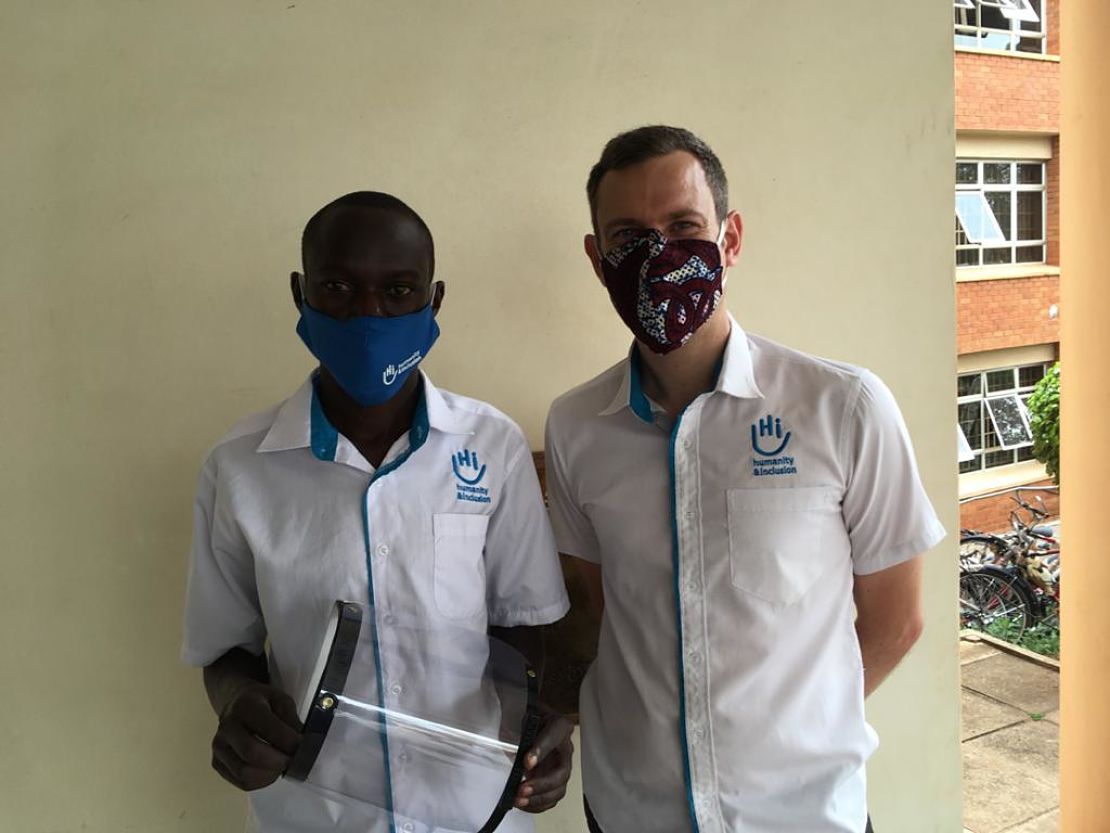Humanity and Inclusion 3D prints face shields for COVID 19 first responders in Uganda
In Uganda, HI has adapted 3D printing technology used for physical rehabilitation to produce protective face visors for health professionals on the front line

Disan, left, HI 3D Technician, with a finished 3D printed face shield, Arua Uganda | © HI 2020
3D printing at HI
In 2019, HI launched an innovative project in northern Uganda using the latest 3D scanning technology and 3D printers to create made-to-measure leg splints for refugees.
National shortage of PPE material
In March of this year, the Ugandan National Task Force on COVID-19 reported a significant shortage of Personal Protective Equipment (PPE) for its frontline and health worker staff and requested donations from industry and organisations capable of producing locally-made PPE.
HI's 3D Technician, Disan, explains how Humanity and Inclusion adapted:
"The shortage of face shields for medical responders testing and treating COVID-19 patients in hospital was putting these brave individuals at risk and under great strain. We sat down with our local partners, CORSU and Skymac, and designed a digital template for the 3D printers and a manufacturing process.
The headband is the part of the face shield suited to 3D printing. The plastic filament we use creates a lightweight, flexible and resistant object ready for assembly in just four and a half hours.
We donated our first batch of 50 face shields to the Ministry of Health National Task Force on COVID 19 in August. It was quite an important moment for me personally to see the skills I acquired during my training contribute to my country’s response to the crisis."
HI plans to continue producing face shields alongside splints for rehabilitation beneficiaries. The need for PPE is particularly high in the refugee settlements of Arua District where the orthosis project is being implemented.
Horizon Prize for Innovation
HI was awarded a European Innovation Council Horizon Prize of one million euros in September 2020 for our ground-breaking work using technology and telemedicine for physical rehabilitation.
This article was originally published on the Humanity and Inclusion website.